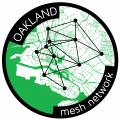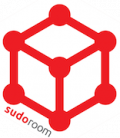It has become clear to me that the value of this ethnography lies not in my description of experiences, but rather in elucidating the myriad shifting possibilities that emerge in the highly intersubjective field of discourses. As my research has deepened, the one thread that ties these discourses together is the pervasive feelings of anxiety evoked by the blurred boundaries between subject and object, voyeur and exhibitionist, human and machine, reality and imagination. All technologies extend the possibilities of humankind, and in turn, they become humanized and embedded in everyday experiences. However, at times technologies may seem alien and incomprehensible, instigating fear and a sense of powerlessness. The sense of agency felt as one “types oneself into being” through the creation of a publicly viewable online profile can quickly be negated by the discovery that this personal freedom comes with the cost of possible persecution by unintended audiences, such as potential employers and legal authorities. What occurs is a split of selfhood, a temporal shift of identity from intentional author to victimized object of the gaze.
Despite the existential anxieties that arise frequently in everyday discourse, many celebrate the Internet for its potential to democratize information. The perceptual difference between the democratization of information and the invasion of personal privacy lies in the degree of power individuals perceive themselves as having over the medium, as well as the extent to which they feel the medium has power over them. A common way of regaining control and agency when confronting one’s own powerlessness is with words and thoughts, projecting apathy or distaste and finding affirmation through others. Feeling a loss of connection, my friend described her adolescent brother as “consumed by MySpace, his gaze never turning from the computer screen”. For her brother, it is likely that MySpace conveniently fulfills his youthful desire to hang out in a space safe, away from the judging gaze of his family. To reject or criticize is to reclaim one’s subjectivity, or at least portray oneself as the author of one’s own meanings.
Years ago, I endeavored to learn Swahili and travel to Zanzibar for fieldwork. As I became engaged with the actual practice of writing ethnography, however, it became clear to me that writing the “other” would always feel somewhat wrong, condescending. When I wrote my first paper on Facebook back in the spring of 2006, I was struck by the way in which my own experiences resonated in my writing, how the words of others challenged and complicated my perspective with layers of meaning. In other words, I realized the ethnographic authority in my own position as a “native” of an emergent “other”. Eventually, the real struggle became that of subverting such a perceived authority in pursuit of deep listening- of practicing empathetic, temporal re-interpretations of my interpretations. It is easy to say in theory, but difficult to show in practice. As such, I have concocted plans for a website that would ideally bring to life the co-constructive nature of this project by enabling further co-authorship in the form of a wiki . Rather than simply purporting a “native” interpretation, such an ethnography incorporates the voices of “other natives” as well as “others”. As for now? I no longer have a working title. That, too, must emerge out of the thematic coalescence of the many stories and experiences that demand still further interpretation.





